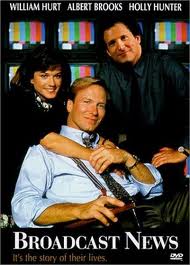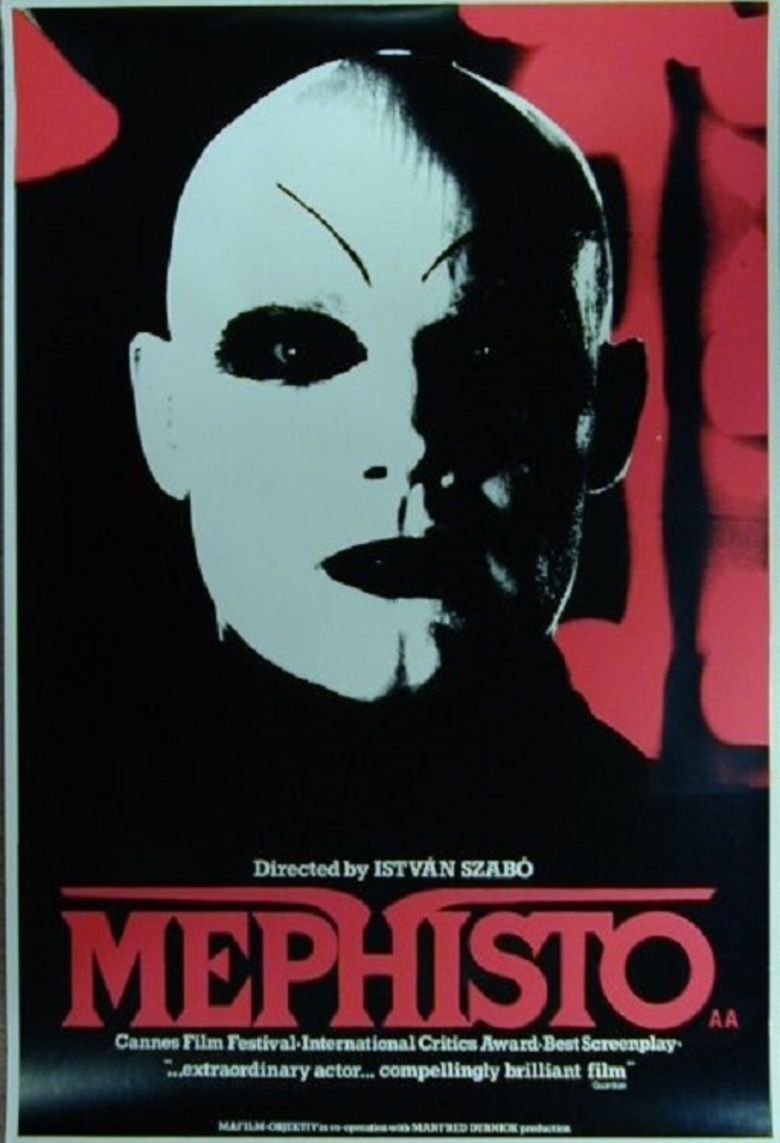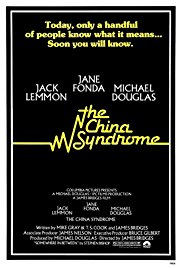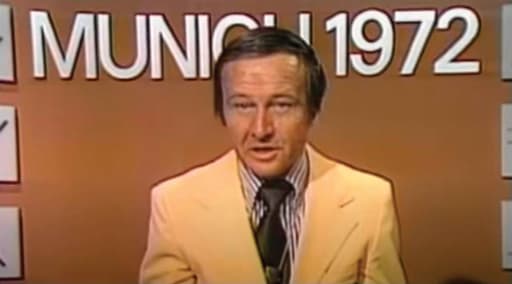‘September 5’ marks the end of a television era — not the dawn of a new one
“September 5” is a parasitic type of work with little to say, hitching itself to a monstrous tragedy while keeping its head down and far from any judgments. Why does it work? Because this horrifying subject, in any format, sadly is gripping drama.
That is recognized by director Tim Fehlbaum, who smartly decides he doesn’t need anything more and unsmartly decides to depict this activity with a bouncing, hand-held camera. His movie is telling you it’s only adhering to news standards, which are not reason enough for a film, even with dozens of tough decisions that build rapid-fire tension. There are so many implications from this event — still highly debated today as to what should’ve been done and what it means — that the script’s choice to settle on the common notion of the inexperienced crew rising to the occasion feels like a sellout.
The idea that this event or its coverage transformed the news media, as the filmmakers will argue, is a massive reach. This depiction is far more about the end of the old era of television than the dawn of the current one. The same constraints in Munich existed for JFK coverage in 1963. Few channels existed, news didn’t air overnight, film was more common than videotape, cameras could not be easily moved around on the streets. In other words, limited broadcasting.
On the other hand, some things for the media were much better. Less than a decade after JFK, the news media still had, compared with now, extraordinary access to politicians, newsmakers and athletes, and security for a lot of things was far less stringent than today. “It was the end of innocence for all of us,” Jim McKay says in an ESPN production in the 2000s, although sadly, numerous events can make that claim.
Prominent news stories can happen anywhere; Pearl Harbor, Dealey Plaza, 10050 Cielo Drive, the Dakota building. If the ABC crew in “September 5” seems like a bunch of overachievers, know that this enormous story landed right in their exclusive lap. This wasn’t at all like the AP and UPI reporters fighting over the press phone in Dallas. ABC was the sole U.S. broadcaster of the games and was situated within camera view of the Israeli village unit, NBC and CBS nowhere in sight. This was an extremely rare non-competitive environment for such a news event. At no point did ABC have to worry that NBC or CBS might have better camera angles or better witness interviews. It is explained that CBS had some degree of leverage in terms of satellite rights for specific times, space that it would allocate to ABC only if footage were shared. Yet the biggest competitive issue in the film is whether to believe the often-wrong German media reports. “September 5” does not provide, as many films do, the trusty outside source to confirm the ultimate details, rather, the information from Marianne is always believable, the stuff from German media is never believable, and until Geoff, Marvin or Roone personally reports it, we can’t believe it.
The real movie here, which tantalizes throughout but never quite surfaces, is a news organization being so immersed geographically within a massive story that there is/was/should be vigorous debate as to whether the reporting would make a difference to the outcome. Characters never really think about that until German police pull guns on them, and even at that point, it’s only a passing thought.
According to this movie, Roone Arledge, by this point a significant figure at ABC, made no effort to affect the news, only cover it. His approach is extremely by the book and extremely basic. Played by Peter Sarsgaard with authority and fairness, but dry, never does Arledge think outside the box. Did he offer his production to serve as a conduit between hostage takers and authorities; did he propose getting a camera crew into the residence; did he propose allowing the terrorists time on television to make a statement in exchange for releasing at least some of the hostages; did he suggest the possibility of putting relatives of the Israeli hostages in touch with 31 Connollystraße during the crisis.
Apparently, no. Whether any of those approaches is a good idea is beside the point. The unintentional message from the film is that Arledge covered this event as anyone would.
Yet Arledge isn’t even the protagonist. That job falls to Geoff Mason, who supplies the untested-upstart-who-rises-to-the-occasion portrayal; his success is mostly in deploying staffers with unconvential assignments who seem to keep landing in just the right place at the right time. Arledge, Jim McKay and Peter Jennings cannot challenge any of the film’s descriptions; all passed away years ago. Mason in November gave an interview to the Hollywood Reporter, which revealed that Mason in recent years not only met with the film team but called Disney’s Bob Iger to allow the movie to use actual ABC footage. John Magaro’s role as Mason, a likable everyman, is considered a “career-making turn” by the Hollywood Reporter.
“September 5” thrives on, and stumbles with, a battery of TV tropes. One of them is the threat to be pulled off the air, so common that it’s also a prominent angle in another 2024 (but completely unrelated) film, “Saturday Night.” Another is at least one over-40 male condescending to a female staffer. Another is the (mostly small) contributions that have to come from virtually every cast member.
One outstanding — but not perfect — movie in this genre is “The China Syndrome,” a richly California movie that poses a tremendous question about media ethics in the handling of sensitive footage. This situation is far more thought-provoking than the control-room discussions of “September 5,” which are mostly hypothetical. However, “September 5” does have interesting, if too brief, arguments over the power of select words and the descriptions that tens of millions of Americans will hear. A fairly young Peter Jennings takes a completely scholarly approach to the events and explains details about Black September and suggests “commandoes” over “terrorists.”
Both films consider romantic involvement not serious enough for this material — the attractive workaholics collaborate with attractive members of the opposite sex, but there is no dating. The people in “Syndrome” are glossier; it seems like the cameras of “September 5” are fascinated by the common men’s undershirt of the 1970s. (The other popular outfit is the track suit, which everyone in Munich seems to wear to sneak around the Olympic Village.)
The movie implies McKay was the only choice to anchor and was called in on his day off. Chris Schenkel, the popular ABC veteran, was scheduled to host that night’s planned three-hour telecast, but Arledge indicated in an ESPN interview that the “dramatic human story” required “the same skills that had made Jim what he was on ‘Wide World of Sports.’” According to McKay and to local TV listings of that time, ABC provided a three-hour, prime-time broadcast each weeknight during the 1972 Summer Olympic Games.
“September 5” will only cast judgment on the most obvious lapses of the ordeal, which was the non-security in the village and lack of coordination and training among West Germany’s very limited response teams. International terrorism was hardly new in the early ’70s — the first week of the Olympics, American Airlines was taking out full-page newspaper ads explaining the airline’s beefed-up approach to “minimize skyjacking.” Yet it’s at best unclear that even perfect decisions by a West German counterterror operation would’ve been able to save the hostages. Israel refused to negotiate — a forever-debated policy of other nations, at least for some situations, also — and as the clock ticked past hostage takers’ deadlines, German authorities apparently concluded that sniper action against the kidnappers was the only way to potentially save the hostages.
There is gentle criticism in the film at the world’s reaction to the tragedy. Characters express disbelief that the Games continue during the siege, at least the ones that were in progress; however, the incident began around 4 a.m., which meant hours went by before anyone thought to stop the proceedings. All kinds of parties — the Olympics organizers and West Germany and other countries — were concerned that any decision addressing the incident would appear to be a political statement of some sort. Mason in 2024, like the movie, offers what it all means on only the most basic level: “Angry at the unfairness of it all. It was so antithetical to why we were there. Athletes were deserving of the glory. They didn’t have any glory,” he tells the Reporter.
Very few people, outside of maybe a few media veterans, are going to care whether the Sports or News division “ran” the ABC Munich telecast and how many satellite slots they got, and utterly no one needs a herky-jerky hand-held camera to indicate that this was a gritty, unpolished type of scene. That said, “September 5” is some of the fastest 94 minutes in a theater. You’ll wish there were more.
3 stars
(January 2025)
“September 5” (2024)
Starring
Peter Sarsgaard
as Roone Arledge ♦
John Magaro
as Geoffrey Mason ♦
Ben Chaplin as
Marvin Bader ♦
Leonie Benesch
as Marianne Gebhardt ♦
Zinedine Soualem
as Jacques Lesgards ♦
Georgina Rich
as Gladys Deist ♦
Corey Johnson
as Hank Hanson ♦
Marcus Rutherford
as Carter Jeffrey ♦
Daniel Adeosun
as Gary Slaughter ♦
Benjamin Walker
as Peter Jennings ♦
Ferdinand Dörfler
as Hermann Jäger ♦
Solomon Mousley
as Roone’s Assistant ♦
Caroline Ebner
as Assistant Editor Judy ♦
Daniel Betts
as Director Swim Race ♦
Leif Eisenberg
as Camera Assistant Ben ♦
Sebastian Jehkul
as Police Officer ♦
Rony Herman
as David Berger ♦
Jeff Book
as Berger’s Father ♦
Robert Templeton
as Director’s Assistant ♦
Stephen Fraser
as Communicator ♦
Leon Dragoi
as Lighting Technician ♦
Doris Meier
as Content Assistant ♦
Mark Ruppel
as Sound Engineer ♦
Christian Ulrich
as Camera Control Technician ♦
Günther Wernhard
as Content Manager ♦
Antje Westermann
as Script Assistant ♦
Harry Waterstone
as Stage Assistant Larry ♦
Andreas Honold
as Stage Runner JJ ♦
Stefan Mittermaier
as VTR Tech Chuck ♦
Miguel Abrantes Ostrowski
as Hans Klein ♦
Kim Hanfland
as Ulrike Meyfarth ♦
David Iselin
as Mark Spitz ♦
Nikita Borisov
as Werner Lampe ♦
Karolina Gabinger
as Anneliese Graess ♦
Robert Glade
as Hans-Dietrich Genscher ♦
Immanuel Rahman
as Terrorist Issa ♦
Paul Böhme
as Masked Man / German Athlete ♦
Brendan Todd
as American Interviewer ♦
Dirk Schepanek
as ZDF Interviewer ♦
Saeid Yazdani
as Mohamed Tarabulsi ♦
Matthias Schum
as Jim McKay Double ♦
Stiev Neubert
as Tuvia Sokolsky Double ♦
Rafael Peña
as Translator Double ♦
Jordan Prince
as On Set Off Speaker ♦
John Figueroa
as On Set Off Speaker
Directed by: Tim Fehlbaum
Written by: Tim Fehlbaum
Written by: Moritz Binder
Co-writer: Alex David
Producer: Mark Nolting
Producer: John Ira Palmer
Producer: Sean Penn
Producer: Philipp Trauer
Producer: John Wildermuth
Producer: Thomas Wöbke
Co-producer: Ruediger Boess
Co-producer: Constanze Guttmann
Co-producer: Christian Reitz
Executive producer: Martin Moszkowicz
Executive producer: Christoph Müller
Music:Lorenz Dangel
Cinematography: Markus Förderer
Editing: Hansjörg Weißbrich
Casting: Simone Bär, Nancy Foy, Lucinda Syson
Production design: Julian R. Wagner
Costumes: Leonie Zykan
Post-production supervisor: Paul Andexel
Unit manager: Max Locher
Stunts: Manfred Dopfer
Thanks: Jean de Meuron
Thanks: Christoph Fisser
Thanks: Germar Tetzlaff



